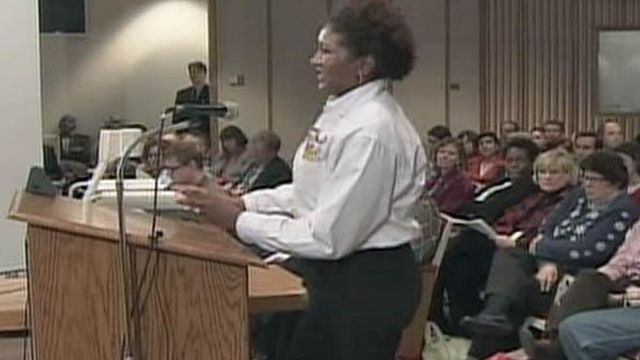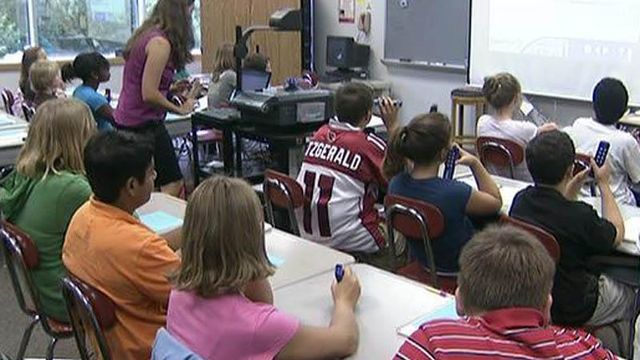Wake public voices concern over neighborhood schools
Dozens of people spoke out Tuesday over whether to end busing in favor of neighborhood schools during the public commenting portion of the Wake County school board's meeting.
Posted — UpdatedReassigning students and busing them away from their neighborhoods to achieve economic diversity in the school system has been a controversial issue for years.
It was a key point in this year's election in which voters elected four candidates who said they supported changing the policy in favor of neighborhood schools.
But a majority of those speaking at the Board of Education's meeting seemed to be in support of the school system's current policy, which is to have no more than 40 percent of students receiving free or reduced-price lunches at any school.
"If you adopt policies that cause our schools to segregate and cause families to flee to the private schools and cause our test scores to plummet, it will make national news," speaker Matthew Brown said. "We will be taken off the list of best places to live, and you will be blamed for it."
More than 70 people were signed up to speak, including Russell Capps, who supports neighborhood schools.
"Wake County voters would rather send their child to the closest school," he said. "Someone asked what your definition is of a neighborhood school. I think a neighborhood school is a school closest to your home."
It's a sentiment with which Enloe High School Student Body President George Ramsey disagreed. He praised the diversity plan, saying he hopes there are no significant changes.
"Diversity is not a policy of convenience. It is a policy of necessity," he said. "In a changing world and economy, I feel it is shortsighted to ignore the enrichment of the educational experience through diversity."
Board members also discussed an audit of the district’s legal services. Newly elected board members want attorney Thomas Farr to handle the audit.
Some board members expressed concerns over selecting Farr and put forward a motion to allow attorneys to make public bids for the job. But the newly elected members, along with chairman Ron Margiotta, voted down the request 5-4.
The newly elected members said the audit is in preparation for potential lawsuits related to the diversity policy.
Meanwhile, the state NAACP on Tuesday asked for a meeting with the school board, saying it wants to discuss concerns about neighborhood schools and the possibility of re-segregation.
"Removing WCPSS’s long-standing commitment to socio-economically diverse schools would predictably lead to segregated and unequal schools, which harms everyone in our community," the letter states. "The impact would be felt immediately at N.C. State, where it would deter new faculty prospects and their families."
The plan is not final, and still has to go before a committee for review.
Earlier Tuesday, board members discussed a year-round schools resolution. Margiotta has indicated that he and newly elected members want to end mandatory assignments to year-round schools and eventually make the calendar an option for families who want it.
Board members decided Tuesday to table the issue until they can hear from parents through surveys. The move came after concerns were raised over whether enough traditional-calendar seats would be available to honor the requests.
The board also learned that more than 300 classes in the district are overcrowded.
Schools, K-3 are required to have a class size no larger than 24 students. When class sizes are too large, the state requires a waiver to "excuse" the overcrowding.
Wake schools sent out class size waivers but they were rejected by the state. That means the school system will have to find ways to fix its overcrowding problems.
• Credits
Copyright 2024 by Capitol Broadcasting Company. All rights reserved. This material may not be published, broadcast, rewritten or redistributed.






